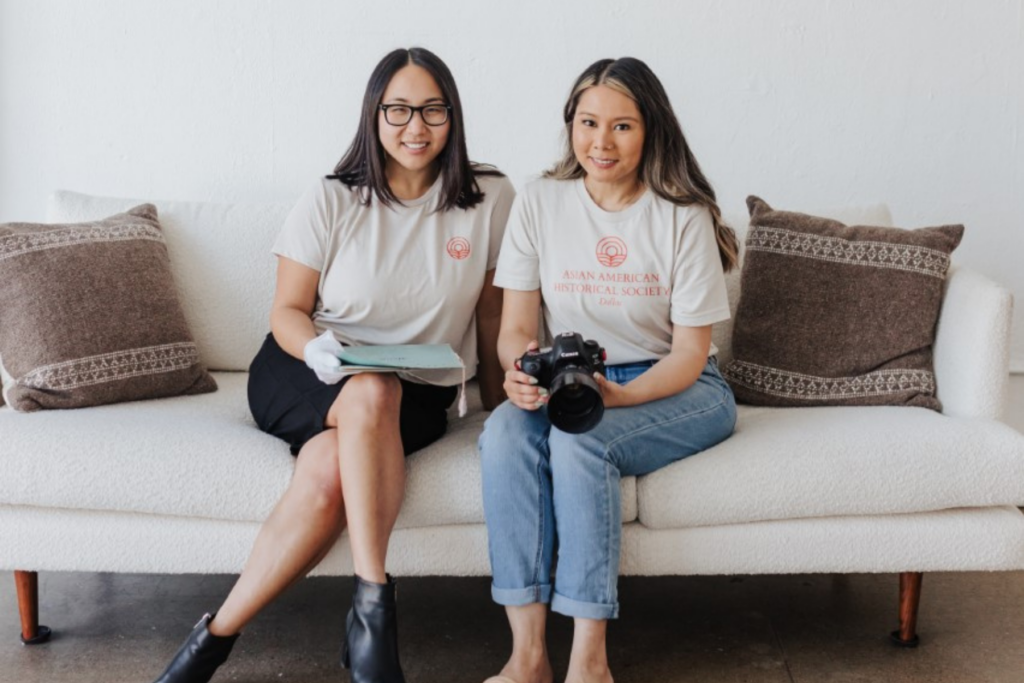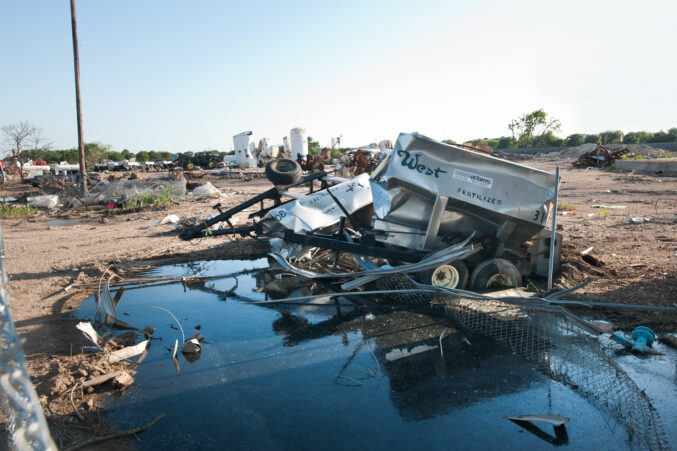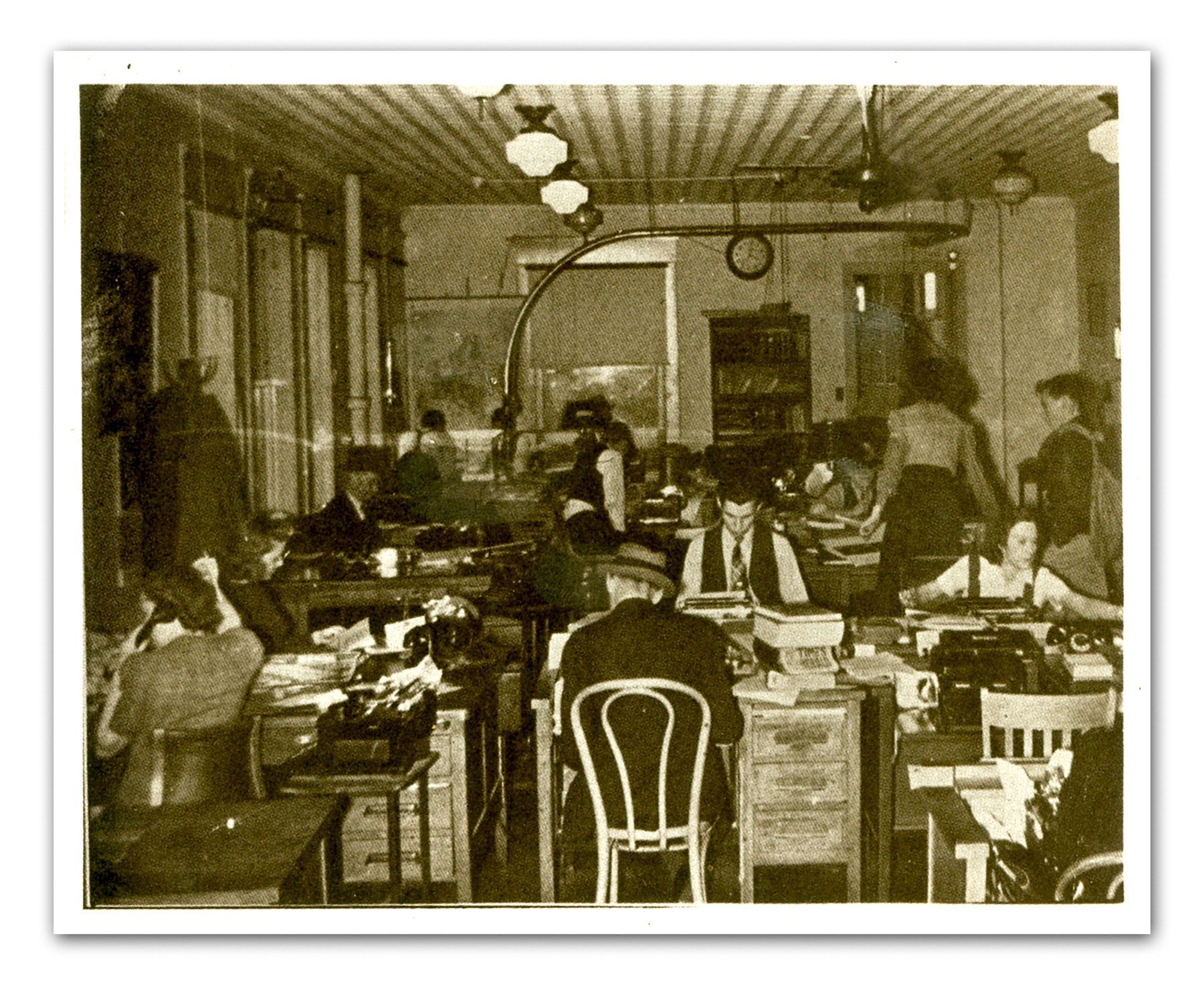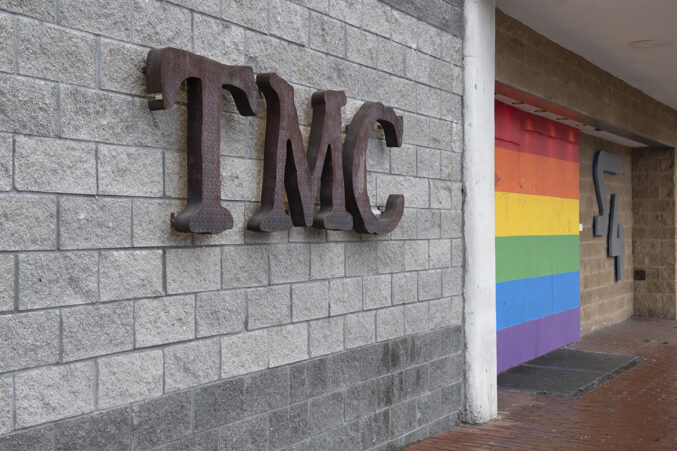As a child, Stephanie Drenka felt like she didn’t have control over her personal history. Drenka, who cofounded the Dallas Asian American Historical Society earlier this year, was born in South Korea but was adopted by a white family in Chicago when she was 3 months old. After taking an Asian American Studies course in college at DePaul University and becoming involved in student organizations, she dove headfirst into learning Korean history, wanting to see where she fit into that story.
Eventually she also started a formal birth family search. That journey took her to a leadership conference in South Korea, an appearance on a Korean television show, and telegrams to a local adoption agency. The process took several years, Drenka says, but she learned she had two older sisters and that her birth father passed away years prior.
“The agency was finally able to get in touch with them by breaking the rules and contacting my sisters,” Drenka says. “I was able to reunite with them, learn more of their family history, and sort of situating myself in their origin story a little bit better.”
Over the years, Drenka had discussions about her experiences as a transracial adoptee with close friends, like Denise Johnson, who immigrated to the U.S. from the Philippines at 17. She realized this powerless feeling over one’s personal history was a common issue amongst many Asian Americans. And she wanted to do something about it.
In March, Drenka and Johnson founded the Dallas Asian American Historical Society. The nonprofit organization researches, preserves, and highlights the legacy of Asian Americans in the Dallas community. It features under-told stories of local Asian American figures and historical locations through articles and documentaries. Individuals can submit personal stories and artifacts, and the team will help them archive and preserve their family’s history.
For Drenka, offering a historical society to the Dallas community that would preserve and amplify Asian American stories could be the most useful tool to battling dehumanizing stereotypes, negative sentiment, and anti-Asian hate crimes.
This, as well as the escalating racial tensions, prejudice, and increasing violence against Asian American spurred by the pandemic, showed Drenka and Johnson something needed to be done. For Drenka, the 2021 Atlanta Spa Shootings hit especially close to home.
“I actually grew up in Marietta, near one of the spas when I was younger,” Drenka says, “and just knowing that it was women of Asian descent and that they were murdered by somebody that had objectified and hyper-sexualized Asian women really struck a cord for me.”
At the time, Drenka was working as communications director at Dallas Truth, Racial Healing & Transformation. She coordinated a national town hall and speak on under-discussed historical facts, like how the Seagoville prison was a Japanese internment camp or how Chinese exclusion laws made it difficult for families to immigrate into the United States. While educating Dallas citizens about historical misconceptions was a passion for Drenka, she was waiting for another organization to step into the void and tell Asian Americans’ history.
“I started doing some research on Asian American historical societies, hoping that I could model after another city,” she says. “I come to find that there is no Asian American historical society in the country. There is a Chinese American historical society and there are Japanese American heritage societies, but nothing to encompass all Asian Americans.”
Drenka then approached Johnson to discuss how they could form a partnership to tackle ongoing racism. They hired a graphic designer, started adding stories to their social media and website, and got 501(c)(3) approval for Dallas Asian American Historical Society.
In April, the society collaborated with Voices of SMU’s Jonathan Angulo to teach participants how to document their own family legacies through oral history.
“We didn’t want to miss out on that opportunity to raise awareness about the need to preserve and archive your family history,” Drenka says. “With May being the [Asian American and Pacific Islander Heritage] Month, we want to take advantage of the sort of larger community attention on the Asian American story.”
The society is also working on longer projects like HEAR ME ROAR: A Collection of AAPI Stories documentary. This ongoing series shines a spotlight on the similarities and differences in the Asian American experience and exposes the harmful stereotypes, like the model minority myth. The upcoming Thank You, Have A Nice Day web series will highlight local, small restaurants while also educating the community on the history behind their favorite cuisines.
The Dallas Asian American Historical Society is hosting its next event, “History in the Making,” from noon to 4 p.m. June 12. At the free digitizing and storytelling event, community members can come share their oral histories to be featured in the HEAR ME ROAR documentary. They can also bring documents and photographs to be professionally preserved—their artifacts will be added to the growing body of Asian American public history in Dallas.
Drenka hopes the video series and upcoming events like ‘History in the Making” will give members of the local Asian American community a much better understanding about their own personal histories. While Drenka’s unsure of how many interviews they’ll get through the society’s various projects, she says they’ll continue these projects “as long as we have stories to tell.”
Get the AtHome Newsletter
Author






